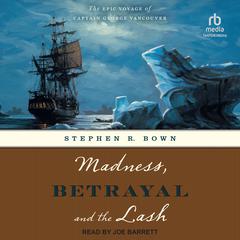 Play Audiobook Sample
Play Audiobook Sample
1494: How a Family Feud in Medieval Spain Divided the World in Half Audiobook
 Play Audiobook Sample
Play Audiobook Sample
Quick Stats About this Audiobook
Total Audiobook Chapters:
Longest Chapter Length:
Shortest Chapter Length:
Average Chapter Length:
Audiobooks by this Author:
Publisher Description
When Columbus triumphantly returned from America to Spain in 1493, his discoveries inflamed an already-smoldering conflict between Spain's renowned monarchs, Ferdinand and Isabella, and Portugal's João II. Which nation was to control the world's oceans? To quell the argument, Pope Alexander VI issued a proclamation laying the foundation for the Treaty of Tordesillas of 1494, an edict that created an imaginary line in the Atlantic Ocean dividing the entire known (and unknown) world between Spain and Portugal.
Just as the world's oceans were about to be opened by Columbus's epochal voyage, the treaty sought to limit the seas to these two favored Catholic nations. The edict was to have a profound influence on world history: it propelled Spain and Portugal to superpower status, steered many other European nations on a collision course, and became the central grievance in two centuries of international espionage, piracy, and warfare. The treaty also began the fight for "the freedom of the seas"—the epic struggle to determine whether the world's oceans, and thus global commerce, would be controlled by the decree of an autocrat or be open to the ships of any nation—a distinctly modern notion, championed in the early seventeenth century by the Dutch legal theorist Hugo Grotius, whose arguments became the foundation of international law.
Download and start listening now!
1494 Listener Reviews
Be the first to write a review about this audiobook!
About Stephen R. Bown
Stephen R. Bown has written ten books on the history of exploration, science, and ideas—including books on the medical mystery of scurvy, the Treaty of Tordesillas, the lives of Captain George Vancouver, and of Roald Amundsen and a doomed Russian sea voyage. His books have been published in multiple English-speaking territories, translated into nine languages, and shortlisted for many awards. He has won the BC Book Prize, the Alberta Book Award, the William Mills Prize for Polar Books. His book Island of Blue Foxes, about Vitus Bering’s voyage to Alaska, was shortlisted for the RBC Taylor Prize. Born in Ottawa, he now lives near Banff in the Canadian Rockies.
About Paul Heitsch
After producing, directing, and engineering spoken word recordings for over twenty years, Paul Heitsch began narrating audiobooks in 2011, and has recorded many bestselling titles as both himself and under a pseudonym. A classically trained pianist, Paul is also a composer and sound designer, and is currently the director of music for the James Madison University School of Theatre and Dance, and an adjunct instructor for the JMU School of Music. He and his family live in the beautiful Shenandoah Valley region of Virginia (although Chicago will always be his hometown).



























